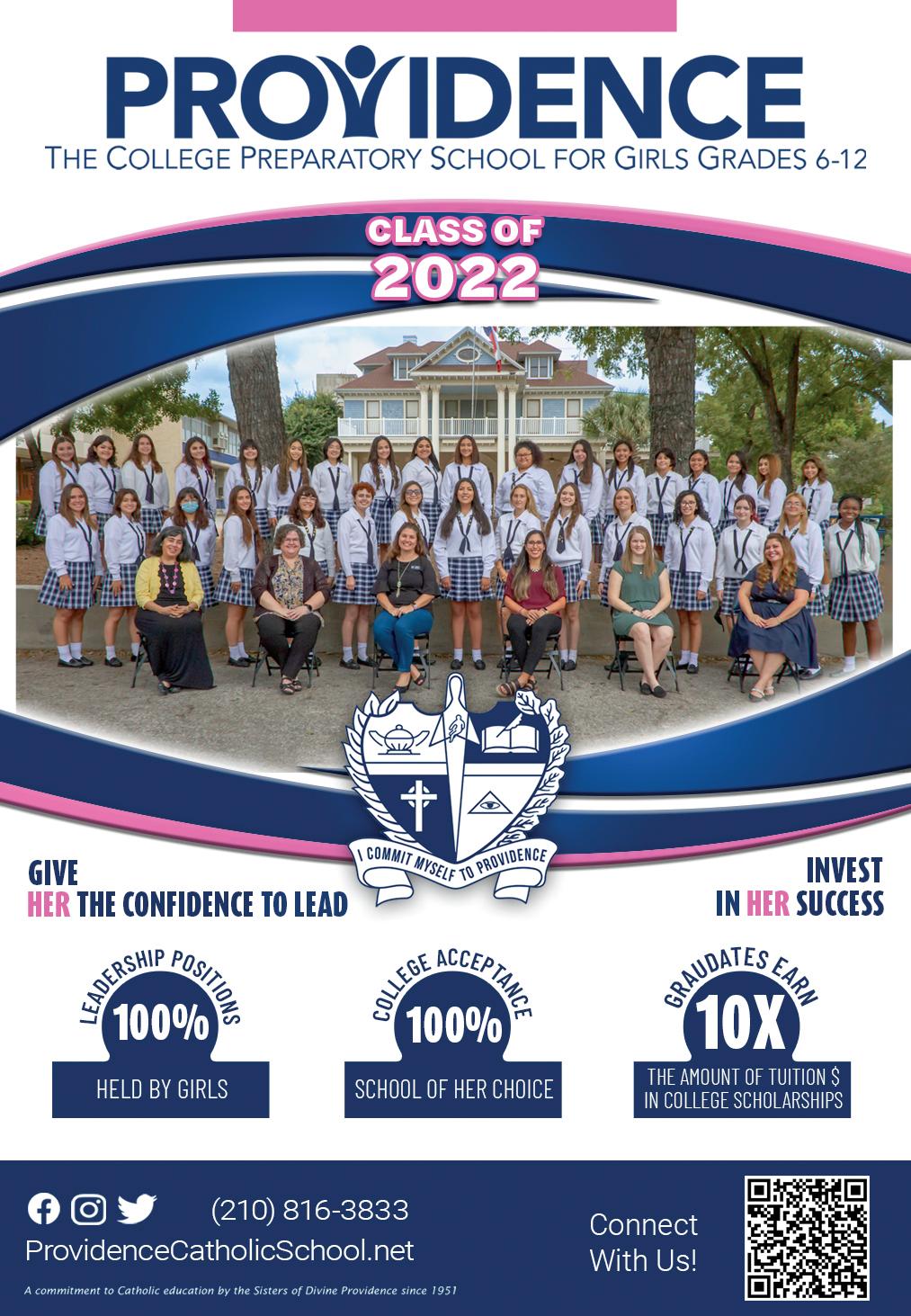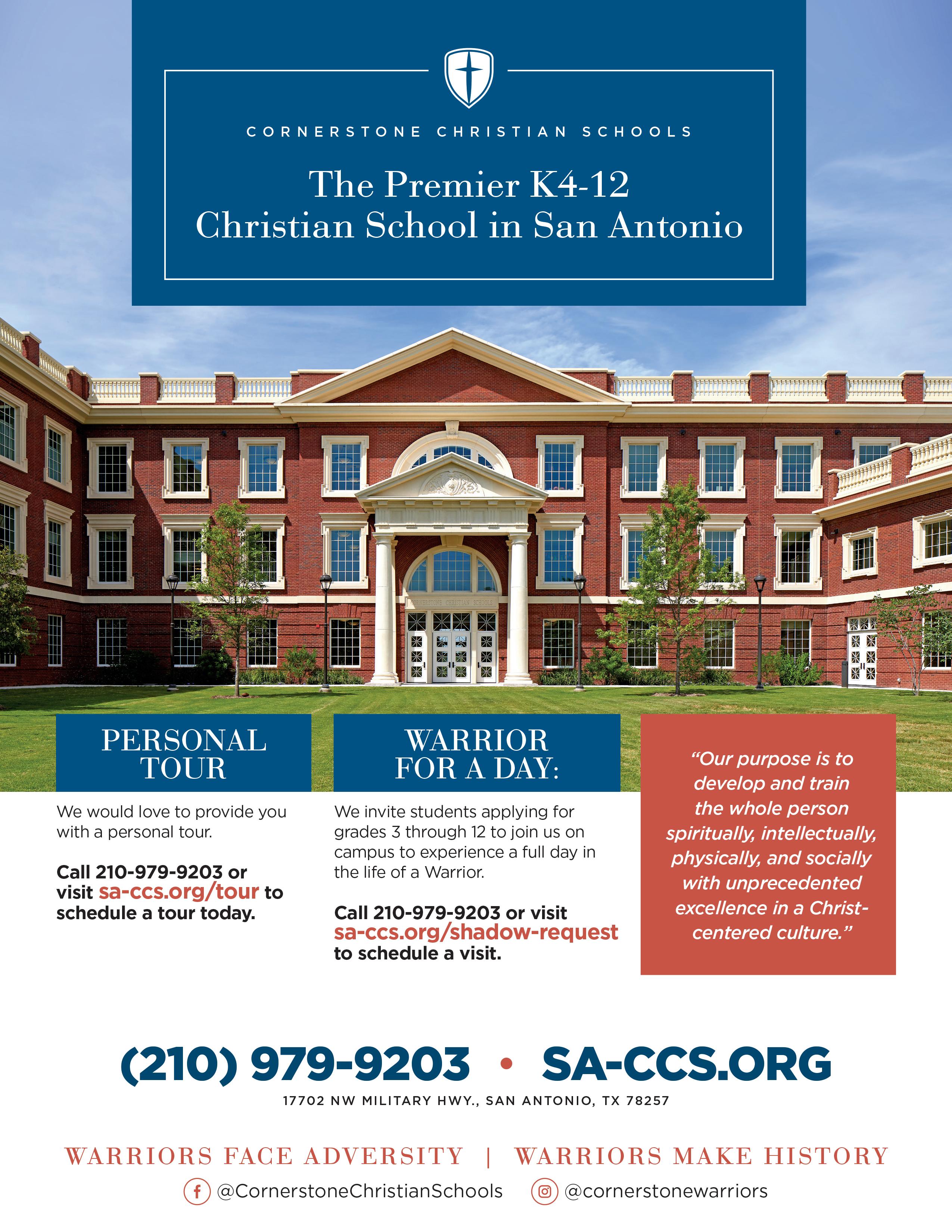
5 minute read
Education
Cornerstone Christian Schools Sunshine Cottage
Cornerstone Christian Schools

EDUCATION GUIDE

Central Catholic High School Saint Mary’s Hall
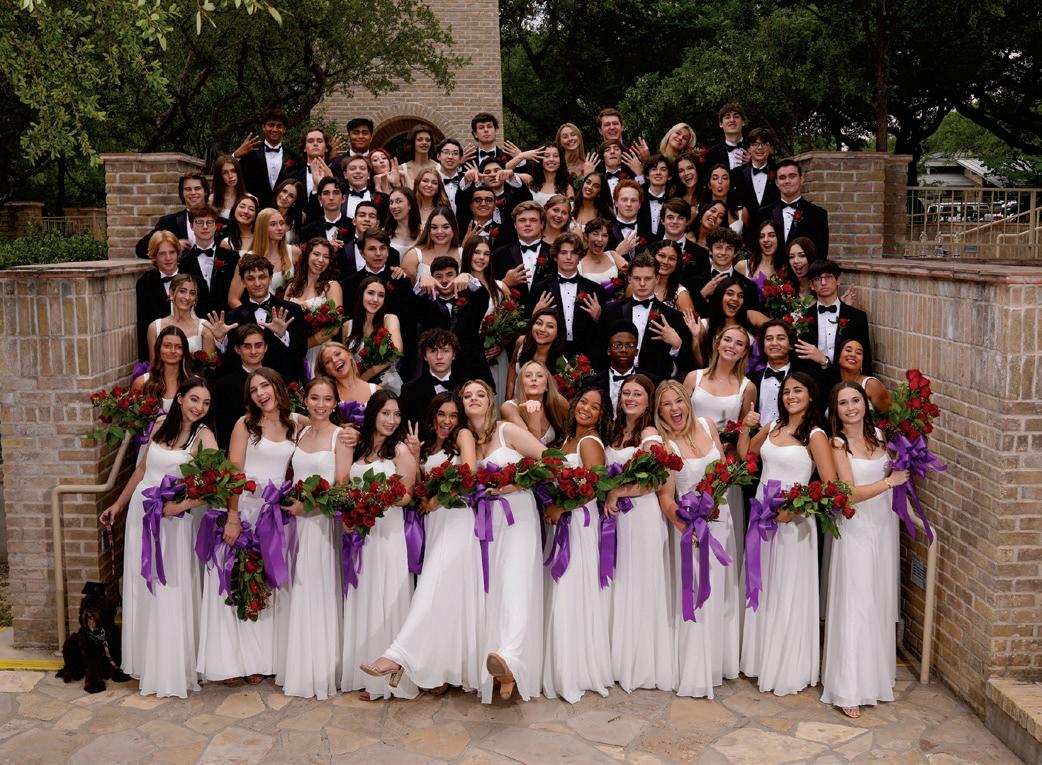


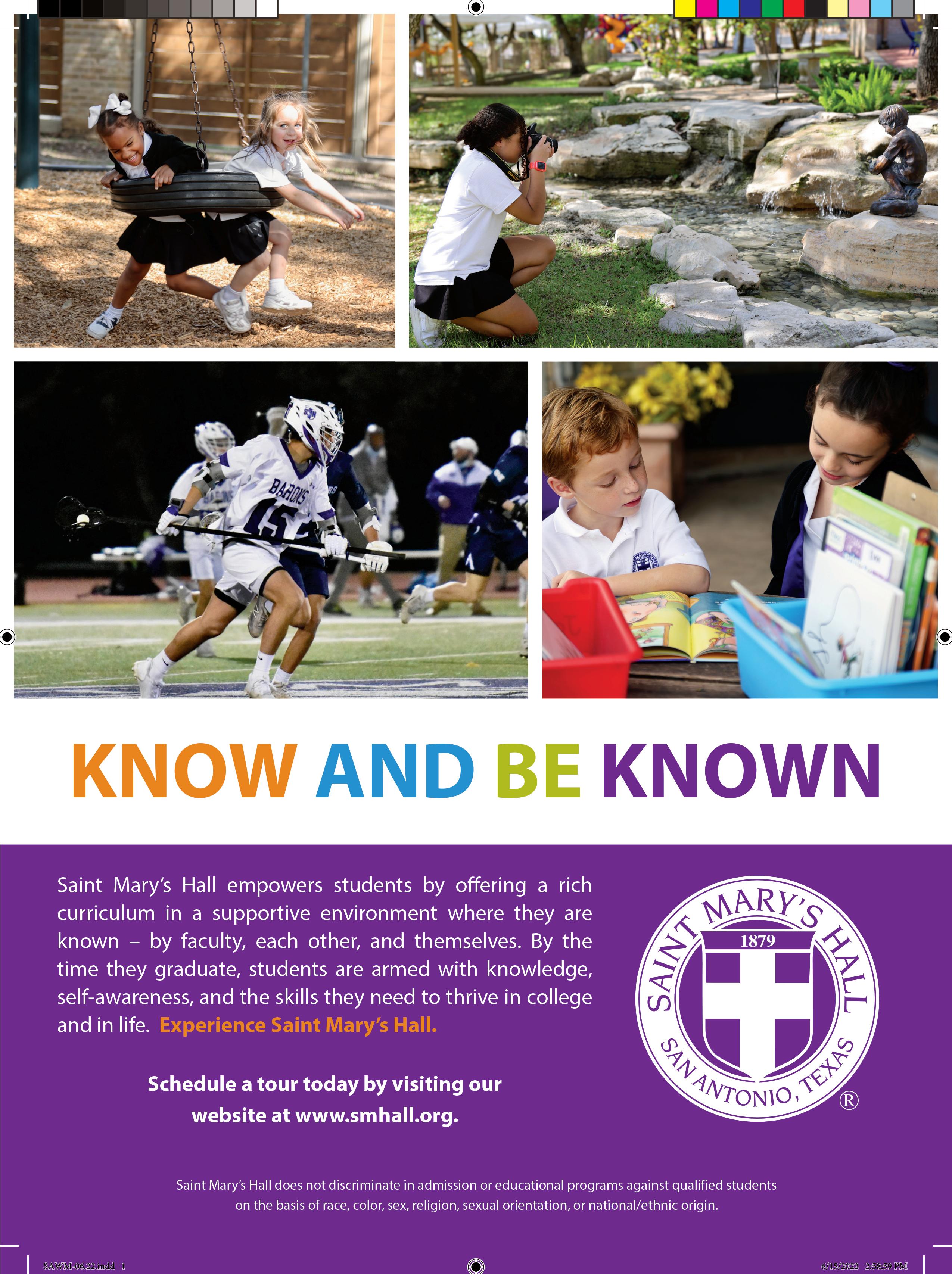
Dyslexia: The Prevalent Learning Difference Surfacing in More Texas Students

By Katie McCall
Watching your child fall into an academic landslide is disconcerting for any parent. Nearly a decade ago, San Antonio parents Elizabeth and Kevin Cox felt confused and concerned as their son, Weston, became frustrated during his third grade reading and writing lessons. Despite reassurance from teachers that he would eventually catch up on his own time, the Coxes advocated for Weston and made multiple requests for a dyslexia evaluation from the school. Their suspicions were confirmed, and Weston emerged from an assessment with a new diagnosis and enrollment in the Take Flight dyslexia program at school.
Dyslexia is a learning difference that creates a communication input and output disconnect. This impacts a person’s ability to read, spell, write, and speak. Though often unfairly stigmatized by society, many people with dyslexia are incredibly smart. Albert Einstein, Pablo Picasso, and Walt Disney are just a few famous figures who did not let dyslexia get in the way of their intellectual prowess and groundbreaking creativity. Kids with dyslexia are often just as capable and hardworking as their peers, but they have trouble connecting the letters they see to the sounds those letters make, which means they need more time to read. It takes enormous persistence, energy, and intelligence to get through school while being held to the same standards as peers without this challenge.
For Weston, dyslexia remediation and intervention made an immediate impact. He began receiving specialized instruction and learned tools to help him be more effective in the classroom. “My new teachers found ways to help me read and write, including writing in cursive. It was a different approach that helped everything click in my brain.”
Now 17 years old and a rising high school senior, Weston credits his successful academic performance to the dyslexia coping strategies he learned at an early age. However, the road to getting here was not without its challenges. As Weston progressed through school, he regularly felt discouraged and isolated when teachers and peers made uninformed judgments about his struggles. “I’ve wanted to give up before. It takes a lot more work to figure things out that came so easily to the other kids,” Weston said. “Dyslexia makes it difficult to prove what you know.”
Historically, Texas has not always required special education experts to conduct dyslexia testing. Instead, many schools tasked general educators with test
administration, creating misdiagnosis. In 2021, the state began streamlining the identification process for students suspected of having dyslexia. New legislation is in the latest version of the Texas Dyslexia Handbook, a document developed and adopted into administrative rule by the Texas State Board of Education. It says that school districts must now conduct all assessments to determine the need for dyslexia services under the requirements of the Individuals with Disabilities Education Act (IDEA). Fortunately, many school districts are making changes to remain compliant, including hiring special education evaluation staff, allocating more budget required for assessment protocols and processes, and testing more students showing symptoms.
As testing improves state-wide, more and more students are diagnosed with this treatable learning difference. In fact, the Texas Education Agency recently shared that the percentage of dyslexic students in Texas increased from 2.4% in 2014-15 to the current estimate of 4.49% in 2020-21. For those diagnosed with dyslexia, families are eligible to file a 504 plan or Students with Disabilities & Section 504 of the Rehabilitation Act of 1973.
Under his 504, Weston is legally entitled to accommodations, including reading via audiobooks, writing his essays via speech-to-text computer programs, and taking specialized tests that recite the questions (including on STAAR, SAT, and ACT exams) so he can quickly demonstrate his knowledge.
“Without these things, I probably would have dropped out of HS or failed every class,” Weston said. Instead, he can completely rebuild a car engine and is on his high school Rocketry team, with future plans to pursue a biomedical engineering degree in college.
Unfortunately, due to a lack of awareness and education about dyslexia, these game-changing accommodations are not always honored in the classroom. That is one of the reasons why the Coxes go out of their way each school year to meet with Weston’s teachers one-onone. Explaining his learning difference and answering questions up front better ensures all of Weston’s teachers are on board to work collaboratively to implement his 504 plan. “I want parents, teachers, and administrators to comprehensively understand dyslexia to help kids like Weston find an outlet to success,” Elizabeth Cox said.
Spreading awareness about this learning difference helps decrease societal stigma among the staff and student body and increase compassion while leveling the playing field for equal evaluation for all students. “My mind used to feel claustrophobic,” Weston said. “I am grateful there has been a way for me to figure out how to learn and communicate with dyslexia.”
You are not alone if you have a child with dyslexia or believe they qualify for an assessment. In addition to public school resources, private and online resources are available to help you and your child navigate their diagnosis.
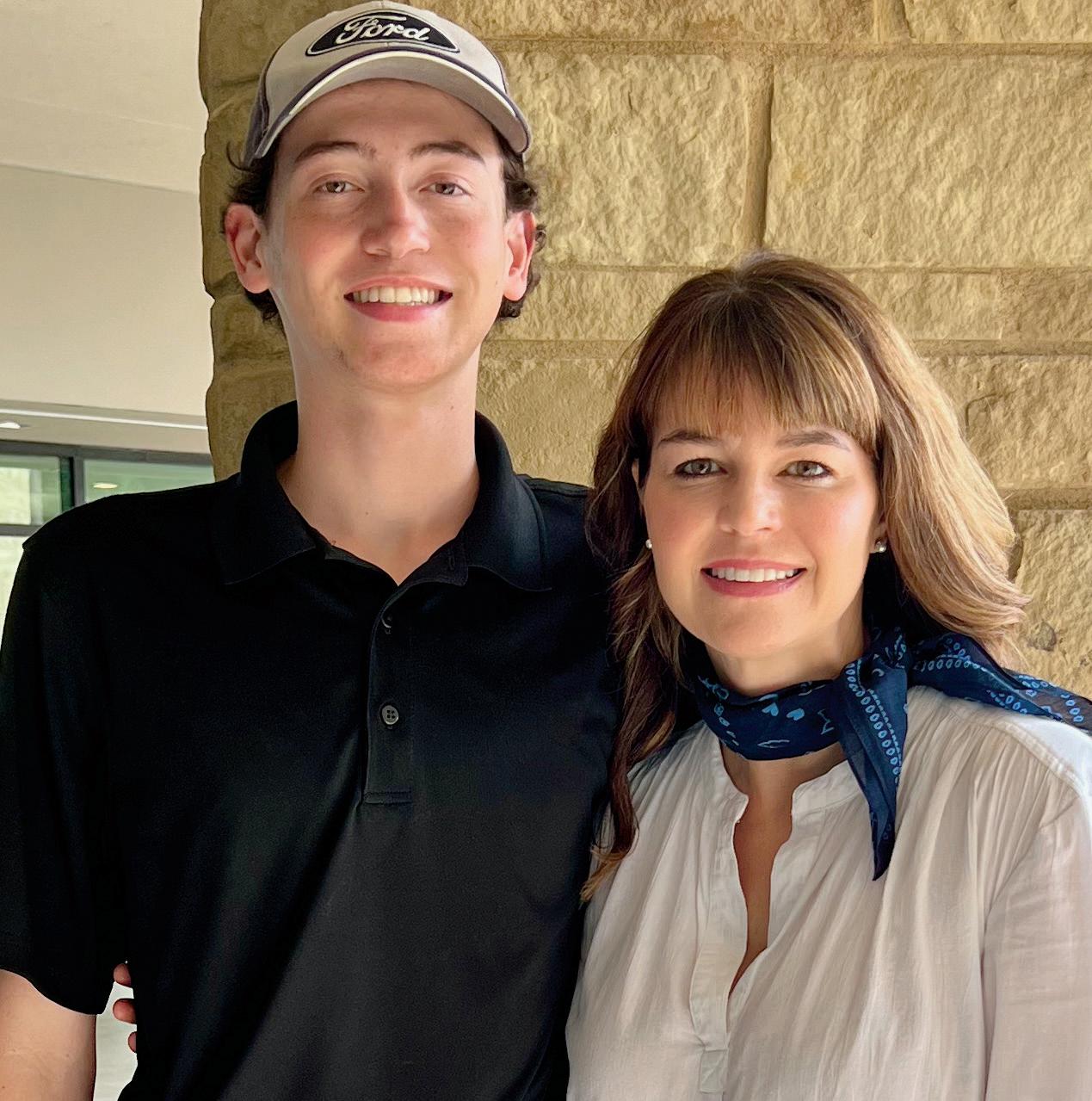
Here are a few places to start: · The Dyslexia Handbook: Learn your child’s rights, and how to advocate on their behalf
https://tea.texas.gov/.../texas-dyslexia-handbook-2021.pdf
· Overcoming Dyslexia, a book by Sally Shaywitz · Assistive Technology Resources
Learning Ally: www.learningally.org
International Dyslexia Association: www.ida.org
· Celebrate Dyslexia
A local resource for families walking this journey. They are also applying for a charter to open a tuition-free new school in San Antonio.
· Take Flight Program | Scottish Rite https://scottishriteforchildren.org/research-andeducation/education/dyslexia-educator-center
· Find a local dyslexia therapist on the Certified Academic Language Therapists (CALTs) database, certified by the Academic Language Therapy Association. https://members.altaread.org/Find-an-ALTAProfessional/
